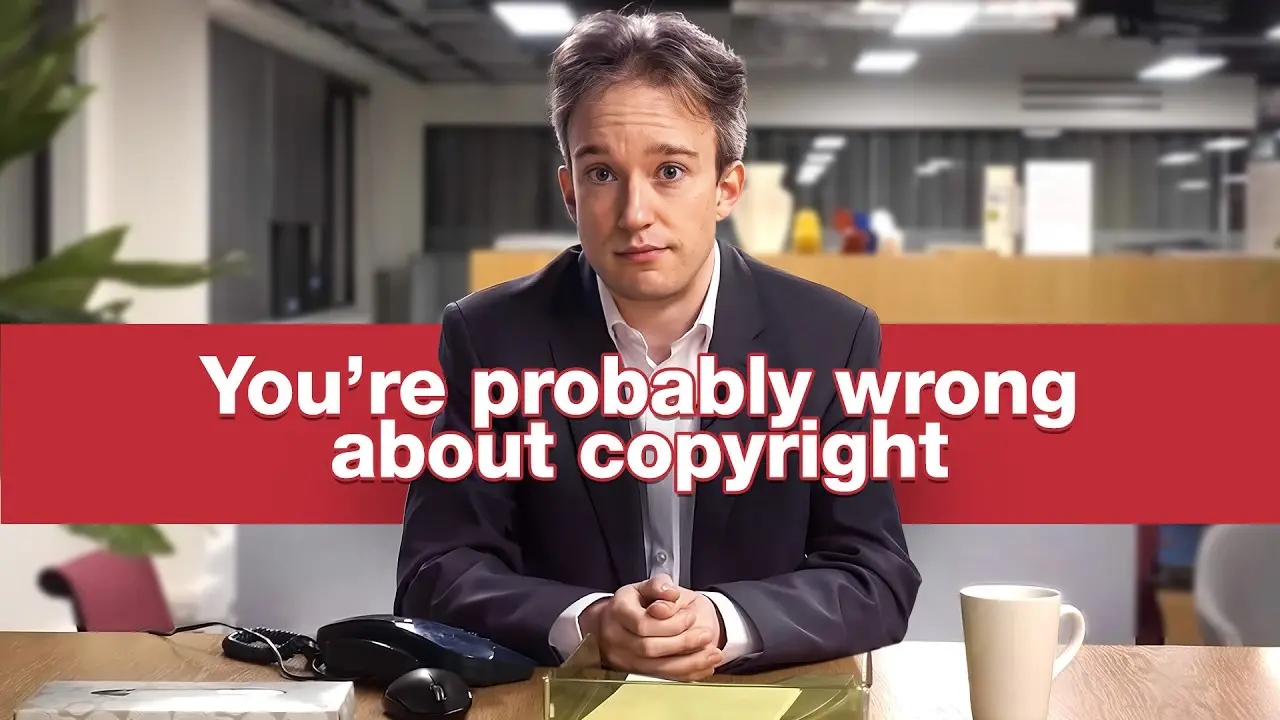So recently there has been a lot of debate on AI-generated art and its copyright. I’ve read a lot of comments recently that made me think of this video and I want to highly encourage everyone to watch it, maybe even watch it again if you already viewed it. Watch it specifically with the question “If an AI did it, would it change anything?”
Right now, AI-generated works aren’t copyrightable. https://www.artnews.com/art-news/news/ai-generator-art-text-us-copyright-policy-1234661683/ This means you can not copyright the works produced by AI.
I work in games so this is more seemingly relevant to me than maybe it is to you. https://techcrunch.com/2023/07/03/valve-responds-to-claims-it-has-banned-ai-generated-games-from-steam/ Steam has outright said, earlier this month, that it will not publish games on its platform without understanding if the training data has been of images that aren’t public domain.
So right now, common AI is producing works that are potentially copyright-infringing works and are unable to be copyrighted themselves.
So with this information, should copyright exist, and if not, how do you encourage artists and scientists to produce works if they no longer can make a living off of it?



There are no AI works that fit this description though. When most people think of AI works they’re thinking of the former, not the latter. So saying “Right now, AI-generated works aren’t copyrightable.” without making the distinction is misinformation designed to spread doubt.
deleted by creator
Where does the article you linked it say this?
The registrar does say this though.
I’m not accusing you of arguing in bad faith or intentionally spreading information, I’m letting you know that you’re repeating the talking points of those who do.
deleted by creator
You’re begging the question by assuming such content hasn’t been modified and could be taken in the first place. How would you know the content you’re eyeing is usable without violating any rights or laws?
Copyright law is one big “It depends” making sweeping statements like made and the headline of the article you linked are oversimplifying the issue and presenting a false dichotomy of a much more nuanced issue. The Reuters article I linked presents much less biased coverage that doesn’t gloss over important facts.
It really isn’t, because copyright law, in basically all countries AFAIK, requires a human to have made the work. So you do not hold copyright for works generated by an AI. All of the sources agree on this.
Humans using the machines have always been the copyright holders of any qualifying work they create.
Sure, when they are creating the creative aspect of the work, not when the machine does. A work of a human can attain copyright, a work by machine cannot.
I’m glad we agree.
This is important. I also question the idea that copyright law might be “broken.” It might need an update, as most laws do, simply because it’s behind the times. The whole conception of this video is to spread doubt, from its sensationalist headline to the content, from which you have extracted the key points of it that wish to spread doubt. Legal systems worldwide need to catch up and develop as fast as technology and software develops now. That’s the problem. Nothing broken here. Outdated? Perhaps.